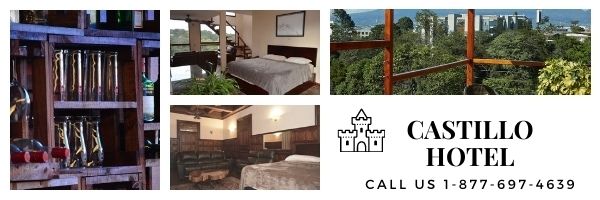from a.m. costa rica today
Quote:
Tourism trend is leaning against adult prostitution
By José Pablo RamÃrez Vindas
and the A.M. Costa Rica staff
A tourism campaign on prostitution appears to have incliuded legal adult prostitution as well as the illegal prostitution of minors.
Thursday the Fundación Paniamor announced that the Best Western hotel chain, operated by Hotelera Marta, had signed its code of conduct. The major emphasis of the code is against sexual contact with minors.
The Best Western Jacó Beach has prohibited the entry of persons who employees consider to be prostitutes since 2004, and Best Western Irazú in La Uruca has done so since 2006, said a company spokesman. This includes adults.
The spokesman, Rodrigo Coto, corporate director, said he estimated that the Jacó facility has lost some $45,000 per year by denying entry to prostitutes.
The hotel firm "rejects whatever type of activity related with prostitution and opposes the fact that Costa Rica is promoted as a sexual destination internationally," said a handout. A table sign distributed by the company says "No to prostitution. To promote prostitution is illegal. We do not allow activities related to prostitution in our facilities. We reserve the right to admission."
MarÃa Teresa Guillen, who promotes the code for Paniamor, said that her foundation is working so that acceptance of the code will be required for tourism facilities that seek to renew their certificate with the Instituto Costarricense de Turismo.
Paniamor has long campaigned against the prostitution of minors. But the session Thursday was the first suggestion that the code could be extended and that adult prostitution would be covered. More than 200 firms have signed the existing code
The Gran Hotel Costa Rica, a venerable San José institution opposite the Teatro Nacional, changed its policy several years ago to preclude guests from entertaining in the rooms. The hotel now characterizes itself as a family venue. This seems to have been a successful change, although there was a short-term loss of customers.
Paniamor has been providing training to hotel employees. The organization said that the Cámera Comercio del Pacifico Central and other tourism facilities have joined to support the initiative.
The fight against the prostitution of minors has been weakened by the presence of adult prostitution that is not illegal. Frequently minors are simply following in the footsteps of their older siblings, who started their careers as minors.
There was no explanation Thursday how hotel employees are supposed to recognize prostitutes who may be checking in to a hotel. If the experiences in the center of San José are any guide, employees probably will target good-looking women alone or in a small group,
Hotel Irazú table sign
although they may not be prostitutes. Costa Ricans are generally blind to male prostitutes.
Milena Grillo, Paniamor's executive director, did not mention the Central Valley Thursday as she listed what she considered to be the major areas of prostitution: Tamarindo, Flamingo, Sámara, Papagayo, Jacó, Quepos, Manuel Antonio on the Pacific and Manzanillo, Cahuita and Tortuguero on the Caribbean.
She also made the astonishing claim that 60 percent of the persons who solicit paid sex are from the United States. She did not cite her evidence, although prostitution is a Latin tradition, and girls as young as 12 can be seen soliciting customers at cantinas all over the country. In addition, San José has an extensive network of brothels that seldom are frequented by tourists or North American expats.
Also unclear is how hotels can bar adult prostitutes under the law.
The code of conduct has been supported by the Asociación Costarricense de Operatores de Turismo, the Asociación Costarricense de Profesionales in Turismo, World Vision in Costa Rica and Save the Ch*ldren of Sweden. None of these groups suggested they were targeting adult prostitution, although the family pressures on the young toward prostitution are well known.
Ms. Grillo noted that contact between minors who are prostitutes and their customers also takes place in private apartments and condominiums. She estimated the Latin American income from prostitution to be some $16 billion a year, citing data from the International Organization for Migration.
Codes of conduct notwithstanding, young women who obviously are below the adult age here of 18 can be seen every evening in Parque Morazán in the Central of San José. In addition young prostitutes gather all over the country outside of bars frequented by adult prostitutes. Sometimes the adult prostitute inside is negotiating on behalf of the minor outside.
These locations are well known and some have tourism certificates. Costa Rica has always had an uneasy truce with illegal prostitution of minors and pimping in any form.











